
Starting June 1st, 2023 Our warehouse fee will be $0.65/cubic foot per month
In effort to lower the warehouse storage fee during inflation, we have went narrow aisle racking.This construction took us four months but the project is finally completed. With narrow aisle racking, we are able to drop storage by 24%.We as partners will go through this inflation together.
10/17/2024
Power of Attorney or POA is a vital legal instrument that empowers individuals to delegate authority and make crucial decisions on behalf of another person. Imagine a scenario where a loved one is incapacitated, unable to voice their wishes or manage their affairs - this is where a POA comes into play, ensuring their rights and preferences are safeguarded.
As life unfolds with unexpected twists, understanding the nuances of POA not only offers peace of mind but also enables proactive planning for the future. Dive into the essential aspects of Power of Attorney and discover how it can be a game-changer in times of uncertainty. See the most complete share of Worldcraft Logistics below.
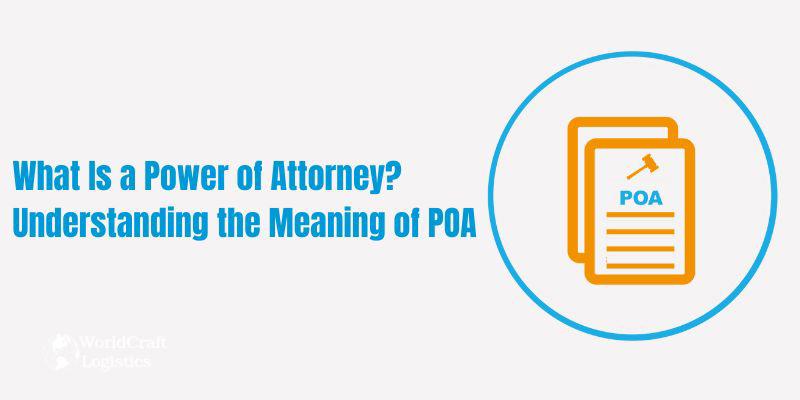
A Power of Attorney (POA) is a legal document that grants one person, called the agent or attorney-in-fact, the authority to act on behalf of another person, known as the principal. This authority can cover various areas, such as making financial decisions, managing property, or handling medical matters, depending on the type of POA created. In this article, Worldcraft Logistics focuses on the logistics and transportation industry.
There are different types of POAs, each serving a specific purpose and having varying degrees of power. Some can be temporary, while others may remain in effect even if the principal becomes incapacitated. Understanding the meaning of POA is essential for anyone considering granting or accepting this legal responsibility, as it allows the agent to make critical decisions that can affect the principal's finances, health, and overall well-being.
Read more:
👉 What is SCAC Code? Why It Matter in Logistics & How to Manage It
👉 Transportation Bonds Explained: Types, Uses, and Benefits
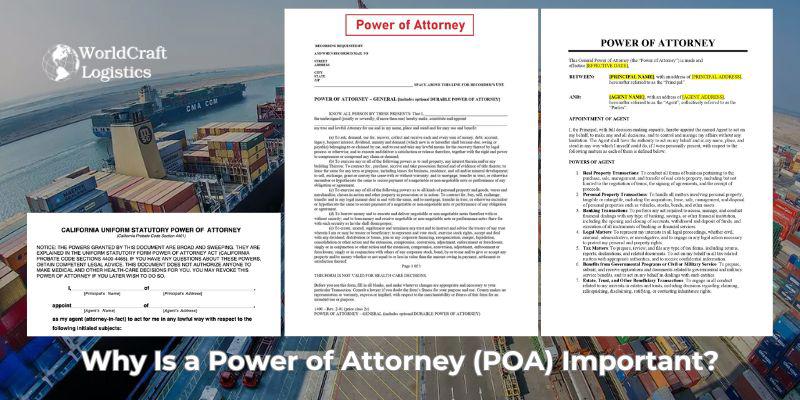
A Power of Attorney (POA) is critical in the logistics industry because it streamlines operations, enables legal compliance, and facilitates efficient management of international trade. Here are key reasons why a POA is important in logistics:
Customs Clearance: A POA allows customs brokers or freight forwarders to act on behalf of importers and exporters, handling necessary documentation and clearing goods through customs. Without this authority, shipments could face delays due to missing paperwork or unpaid duties.
Signing Legal Documents: In logistics, various legal documents, such as bills of lading, shipping contracts, and regulatory forms, need to be signed quickly to avoid delays. A POA gives logistics agents or third-party providers the authority to sign on behalf of a company, ensuring smooth operations.
Regulatory Compliance: International logistics often involves navigating complex laws and regulations across different countries. A POA empowers logistics providers to handle these requirements, including filing necessary documents, paying duties, and ensuring compliance with trade regulations.
Third-Party Logistics (3PL) Management: For businesses that outsource their supply chain to a 3PL provider, a POA grants the provider the power to manage shipping, warehousing, and distribution on behalf of the company. This ensures that the 3PL can make important decisions without delays in communication.
Expedited Decision-Making: The logistics industry is fast-paced, and unforeseen issues like delays, rerouting, or damaged goods require immediate action. A POA allows logistics agents to make crucial decisions on the spot to minimize disruptions and protect the client’s interests.
International Trade Efficiency: In global trade, businesses often need representatives in different countries to handle logistics, including addressing legal requirements and resolving disputes. A POA empowers logistics providers to act independently, ensuring smooth transactions and on-time deliveries.
Avoiding Legal Delays: Without a POA, businesses may face delays in legal processes such as dispute resolution, customs holds, or regulatory issues. A POA allows authorized agents to resolve these issues quickly, reducing potential downtime and financial loss.
In summary, a POA is essential in logistics because it empowers agents to act on behalf of businesses, ensuring faster, more efficient handling of shipments, legal matters, and regulatory compliance. It ultimately helps companies maintain smooth, uninterrupted operations in a complex, fast-moving industry.
The need for a Power of Attorney (POA) often arises based on specific situations, particularly when individuals are unable to manage their own affairs due to physical or mental incapacity. Conditions like Alzheimer’s or Dementia frequently make a POA essential.
Beyond health-related issues, a POA proves invaluable during extended travel, military service, or for elderly individuals who require help managing financial or property matters. It also plays a crucial role in business, especially for small enterprises, when an owner is unable to oversee daily operations.
Importantly, every POA must comply with state-specific legal standards, and selecting a trustworthy agent is vital, as the document grants significant authority, which can be vulnerable to misuse.
Clearly, a POA is much more than just a legal term - it’s a flexible and powerful tool, designed to address a variety of scenarios, from routine management to urgent crises.
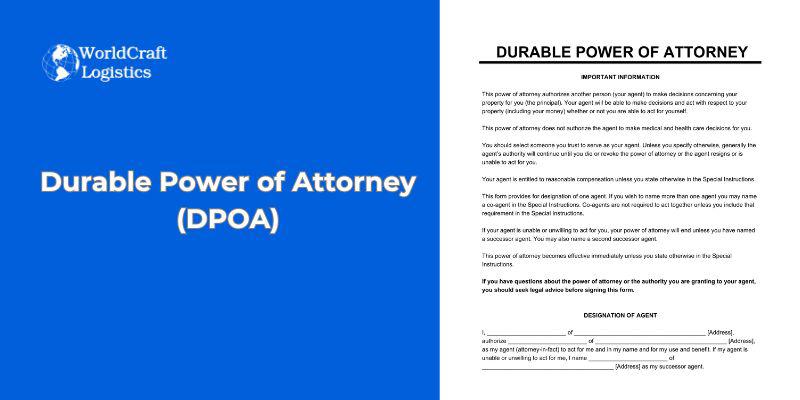
A Durable Power of Attorney remains in effect even if the principal becomes incapacitated. This type of POA is often used to ensure continuous management of financial or legal affairs, particularly in cases where the principal is unable to make decisions due to illness or injury. The DPOA stays valid until the principal’s death or until it is revoked.
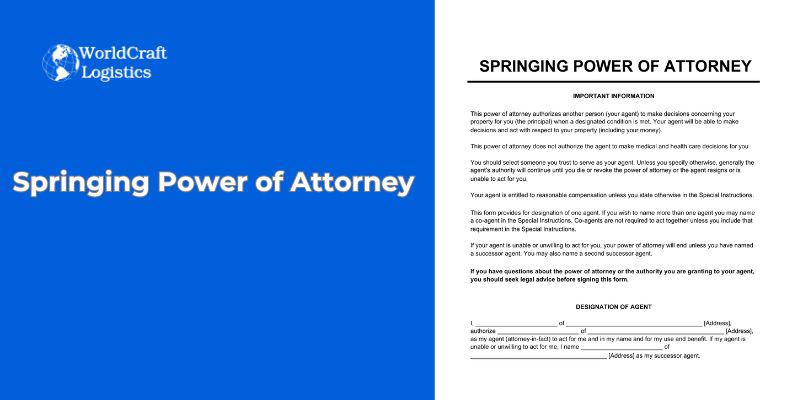
A Springing Power of Attorney only becomes active when a specific event occurs, typically when the principal becomes incapacitated or meets other predetermined conditions. This type of POA is often used for future planning, ensuring that the agent’s authority only "springs" into effect when necessary.
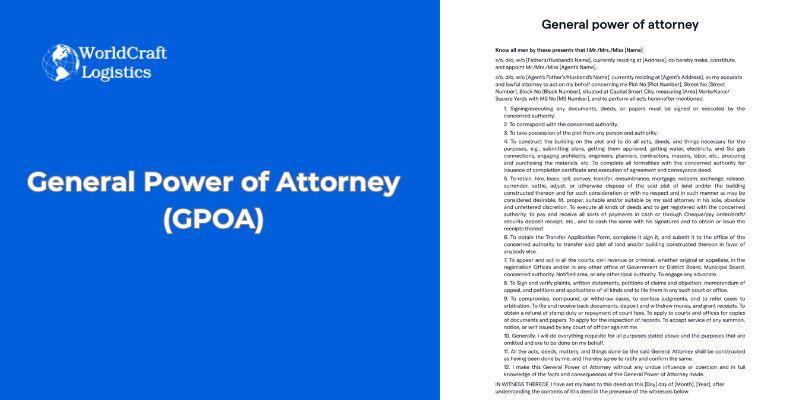
A General Power of Attorney grants broad powers to the agent to act on behalf of the principal in a wide range of matters, including financial, legal, and business transactions. However, this authority ends if the principal becomes incapacitated, making it ideal for temporary delegations of responsibility.
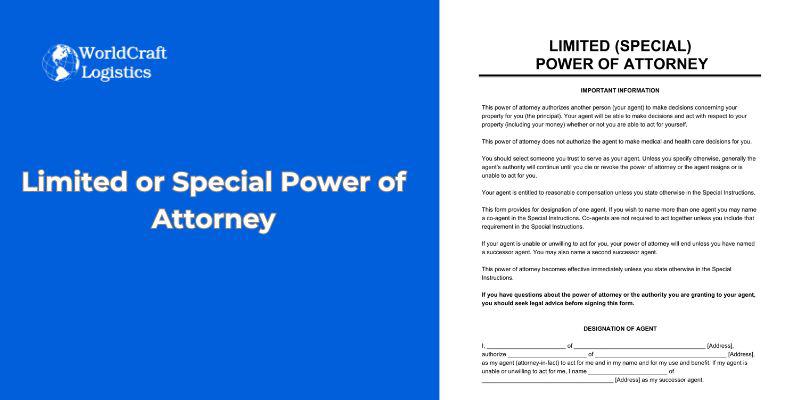
A Limited or Special Power of Attorney is restricted to specific tasks or transactions, such as selling property, managing a particular financial account, or representing the principal in a specific legal matter. This POA only grants authority for the designated actions and is revoked once the task is completed.
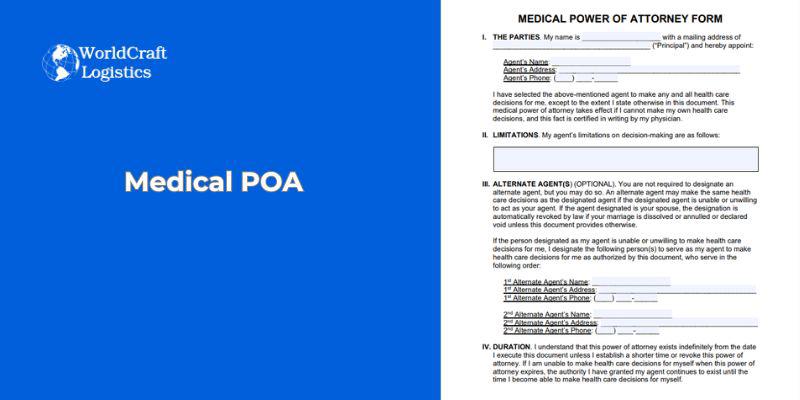
A Medical POA, also known as a Healthcare POA, is a document that gives someone the authority to make medical decisions on your behalf if you become incapacitated and are unable to make decisions yourself.
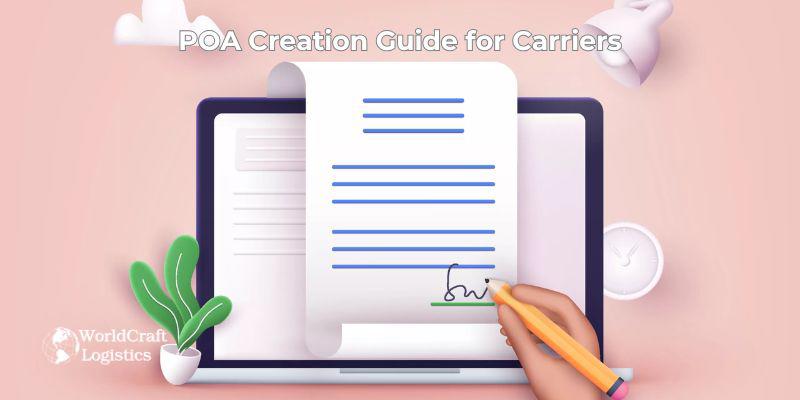
Creating a Power of Attorney (POA) for logistics carriers is an important step to streamline operations, especially when dealing with legal, financial, and regulatory matters such as customs clearance, shipment documentation, and cross-border trade. Here's a comprehensive guide to help logistics carriers understand and establish a POA for their operations:
Before creating a POA, define what specific tasks or operations you want to delegate. Common logistics-related activities for which a POA might be needed include:
Managing customs paperwork
Signing shipment contracts
Handling payment collection or invoice disputes
Resolving legal issues related to shipping or transport.
The agent can be:
A customs broker: Ideal for customs clearance and import/export compliance.
A third-party logistics provider (3PL): Useful for delegating shipment and distribution management.
An internal employee: A trusted employee within the organization may also be granted authority for certain tasks.
Key Considerations:
Ensure the agent has the necessary experience and knowledge of logistics operations.
Establish clear terms for accountability and transparency.
Work with a lawyer who understands logistics law or use a legal template tailored for logistics carriers. The document should include:
Names and Contact Information: Clearly identify the principal (logistics carrier) and the agent (customs broker, 3PL, etc.).
Scope of Authority: Define the specific tasks the agent is authorized to perform, such as:
Filing customs paperwork.
Managing import/export duties and taxes.
Handling shipment-related documents.
Signing contracts or invoices related to shipments.
Effective Date: Indicate when the POA will take effect (immediately or upon a specific event).
Expiration Date or Event: State whether the POA is temporary (for a specific shipment) or ongoing (e.g., for continuous customs clearance for an indefinite period).
Revocation Clause: Specify that the POA can be revoked at any time, outlining how and when this can be done.
Depending on the jurisdiction, you may need to have the POA notarized or filed with the relevant government authority, especially if it involves customs clearance.
Customs POA (CPOA): In the U.S., for instance, customs brokers typically require a notarized POA before they can act on behalf of the carrier with the U.S. Customs and Border Protection (CBP).
International Trade: Different countries have specific requirements for POAs related to cross-border shipping, so check local laws.
Once the POA is signed and notarized, ensure all relevant parties have copies:
The agent (customs broker, 3PL, etc.)
Internal stakeholders such as legal, finance, and operations teams.
Store a digital and physical copy in your legal records for future reference.
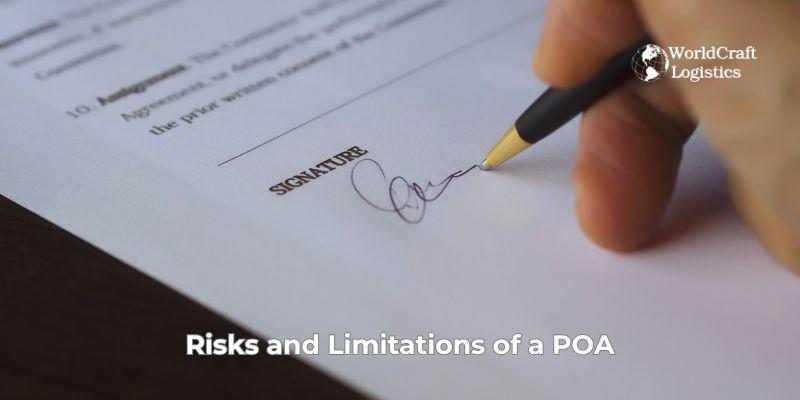
A powerful legal tool POA that allows one person to act on behalf of another, but it also carries certain risks and limitations. Understanding these can help individuals and businesses make informed decisions when creating and using a POA. Here are some key risks and limitations associated with a POA:
Misuse of Authority: The agent may misuse the authority granted to them, leading to unauthorized transactions, embezzlement, or fraud.
Lack of Oversight: If the principal is incapacitated or unavailable, there may be no immediate oversight of the agent's actions, increasing the risk of abuse.
Narrow Definition: A limited or special POA only grants specific powers, which may not cover unforeseen situations. If the principal needs the agent to perform additional tasks outside the scope of authority, they may be unable to act.
Expiration and Revocation: Some POAs are temporary and can expire after a specific event or date. If the principal revokes the POA, the agent loses all authority, which may disrupt ongoing transactions.
Jurisdictional Variations: Laws regarding POAs can vary significantly by jurisdiction, leading to potential legal complications, especially for cross-border transactions.
Invalidity: If the POA is not properly executed (e.g., lacking necessary signatures or notarization), it may be deemed invalid, rendering any actions taken by the agent unenforceable.
Contingent Activation: Some POAs, especially medical ones, only activate upon the incapacity of the principal. If the principal becomes incapacitated without a valid POA in place, their affairs may be left unmanaged.
Ambiguity in Incapacity: Determining when a principal is incapacitated can lead to disputes among family members, resulting in potential legal challenges regarding the agent’s authority.
Lack of Experience: The agent may not have the necessary knowledge or experience to make informed decisions on behalf of the principal, particularly in complex financial or legal matters.
Personal Conflicts: An agent may face conflicts of interest or make decisions that benefit themselves over the principal, leading to potential disputes or loss of assets.
Lack of Transparency: Insufficient communication between the principal and agent can lead to misunderstandings or disagreements about decisions and actions taken.
Changes in Circumstances: If the principal's situation changes (e.g., changes in health, financial status, or family dynamics), the agent may not be aware of these changes, leading to inappropriate decisions.
Power to Act: A POA does not give the agent the power to make decisions beyond those specified in the document. For instance, an agent cannot alter a will, make medical decisions if not specified, or take actions that violate the principal's wishes.
Limited Duration: Some POAs are designed to last for a specific period or until a certain event occurs, which may limit the agent's ability to act in ongoing situations.
Complex Process: Revoking a POA can be complicated, particularly if the principal is incapacitated or if the agent refuses to acknowledge the revocation.
Notification Issues: If not properly communicated to all relevant parties, the revocation may not be honored, leading to continued actions by the agent that the principal no longer endorses.
Depending on how the POA is executed and filed, it may become a public document, which can expose personal and financial information to third parties.
Note:
While a Power of Attorney can be an effective tool for managing affairs and ensuring decisions are made according to a principal's wishes, it is crucial to understand the associated risks and limitations. To mitigate these risks:
Choose a trustworthy and competent agent.
Clearly define the scope of authority in the POA document.
Regularly review and update the POA as circumstances change.
Seek legal advice to ensure compliance with applicable laws and to create a robust and effective POA.
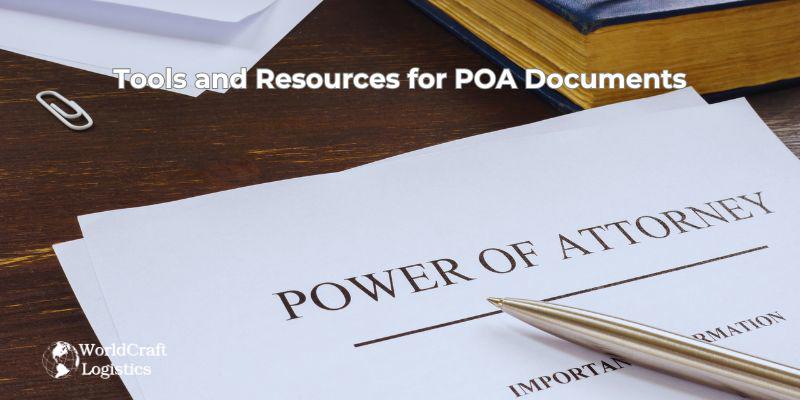
Creating a Power of Attorney (POA) document involves careful consideration and often legal expertise. Fortunately, there are several tools and resources available that can help individuals and businesses draft, customize, and manage POA documents effectively. Here’s a list of valuable tools and resources:
LegalZoom
Rocket Lawyer
Nolo
LawDepot
State Bar Associations
State Government Websites
Local Legal Aid Organizations
MyAttorneyHome
Clio
Local Attorneys
Legal Clinics
Nolo’s Essential Guide to Divorce
The Complete Guide to Power of Attorney
National Institute on Aging (NIA)
Centers for Medicare & Medicaid Services (CMS)
US Legal Forms
FindLaw
Community Centers
Online Platforms (Coursera, Udemy)
These resources can help you create, customize, and manage your POA documents effectively.
In conclusion, a Power of Attorney (POA) is an essential tool in the logistics industry, allowing businesses to delegate authority effectively and streamline operations. By establishing a well-defined POA, companies can ensure that trusted representatives can make critical decisions on their behalf, from managing contracts to handling shipments. This not only enhances efficiency but also safeguards interests in a rapidly changing environment. As logistics continue to evolve, understanding the significance of a Power of Attorney can empower businesses to navigate challenges with confidence and ensure seamless operations.
SEO
Digital Marketing/SEO Specialist
Simon Mang is an SEO and Digital Marketing expert at Wordcraft Logistics. With many years of experience in the field of digital marketing, he has shaped and built strategies to effectively promote Wordcraft Logistics' online presence. With a deep understanding of the logistics industry, I have shared more than 500 specialized articles on many different topics.
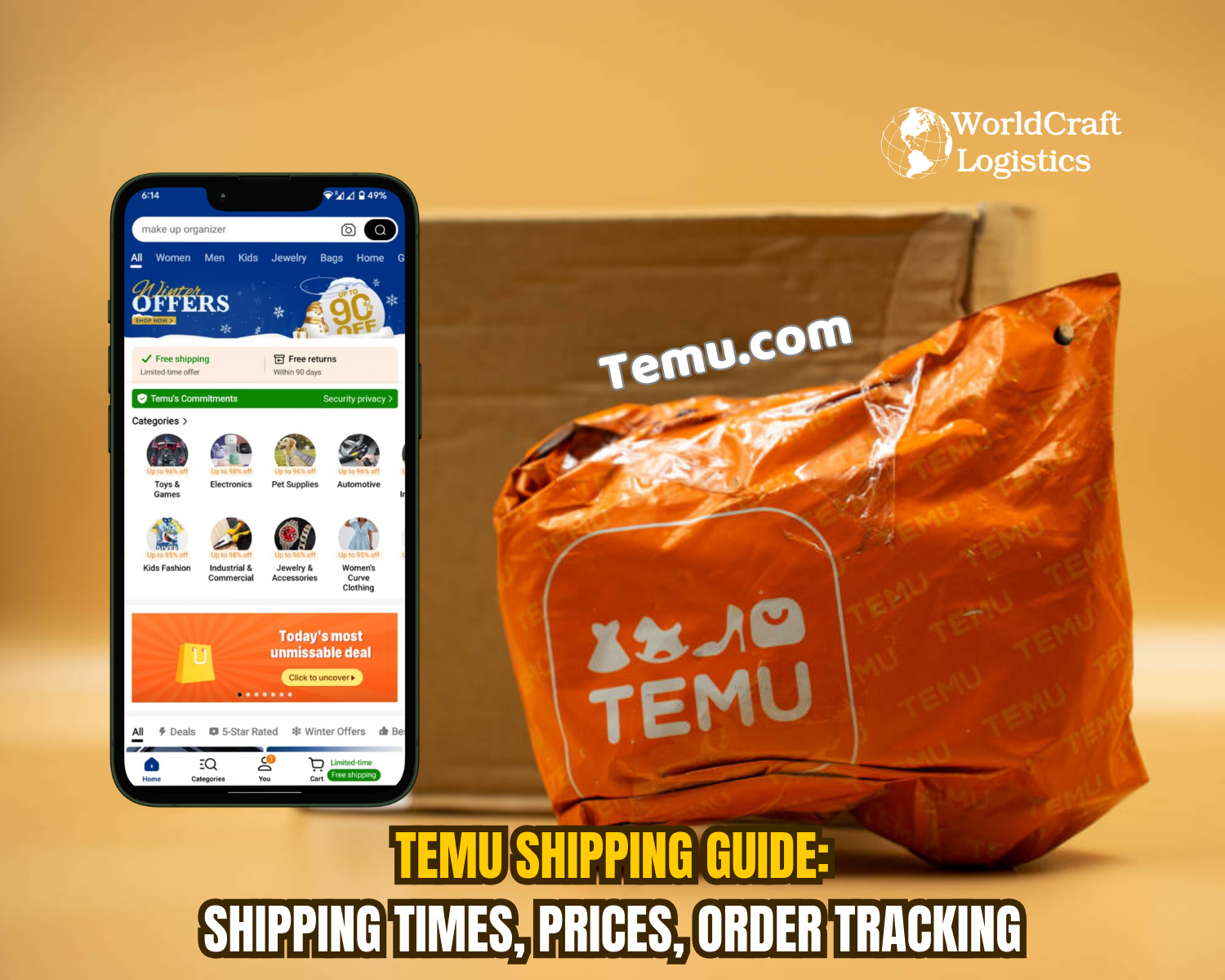
Education
01/05/2025

Education
02/18/2025
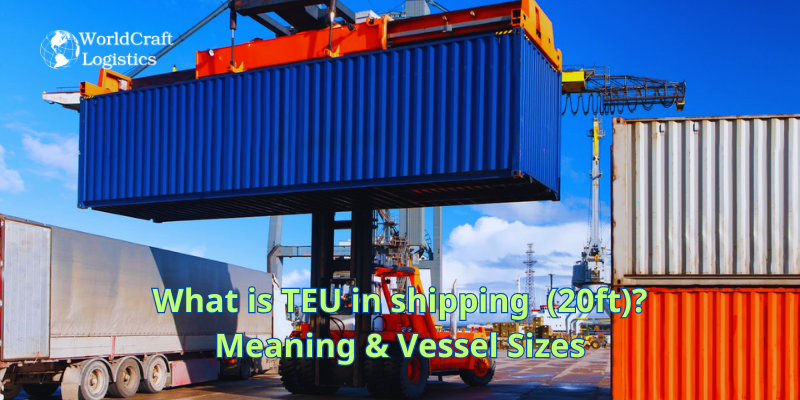
Education
01/01/2024
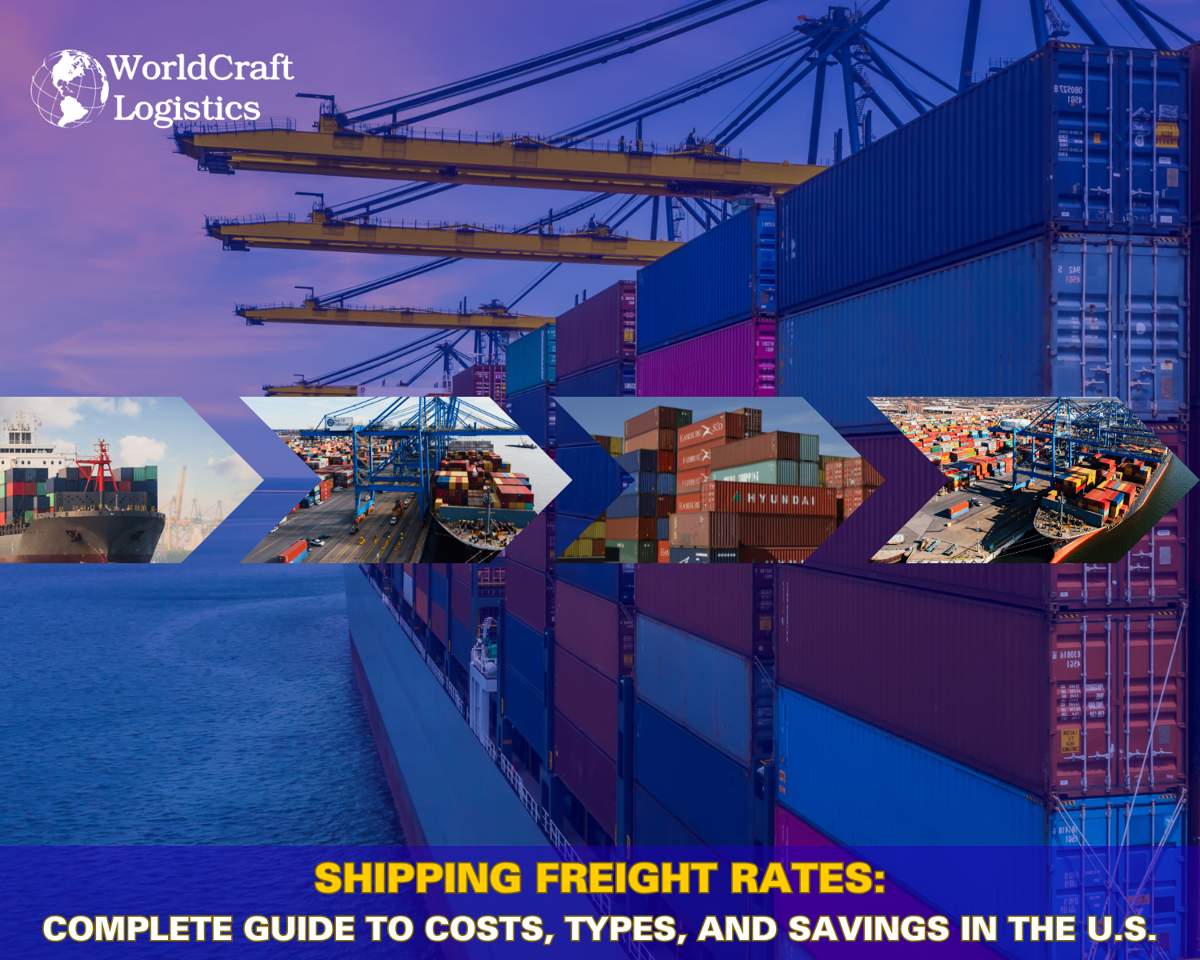
Education
09/09/2025
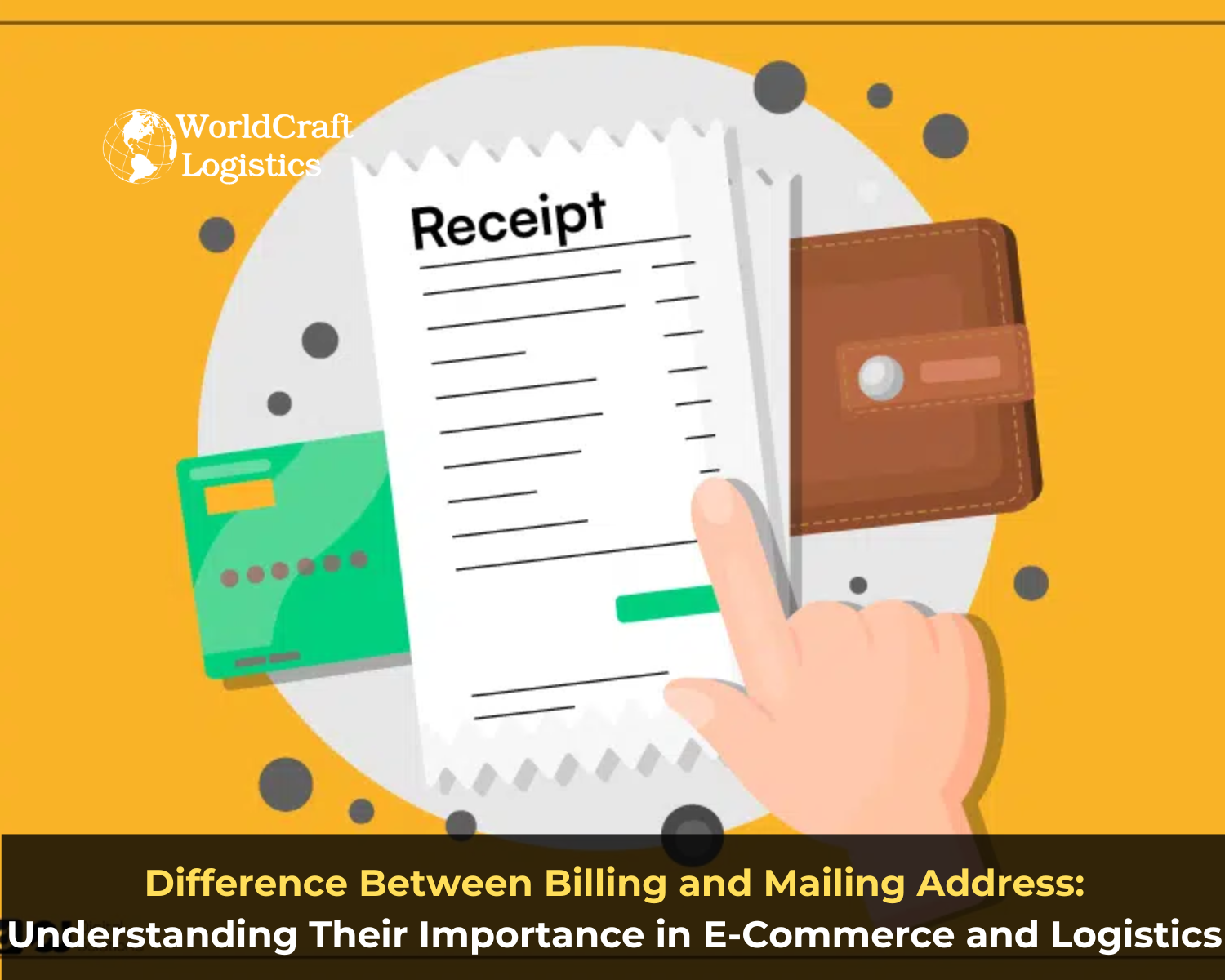
Education
08/28/2024